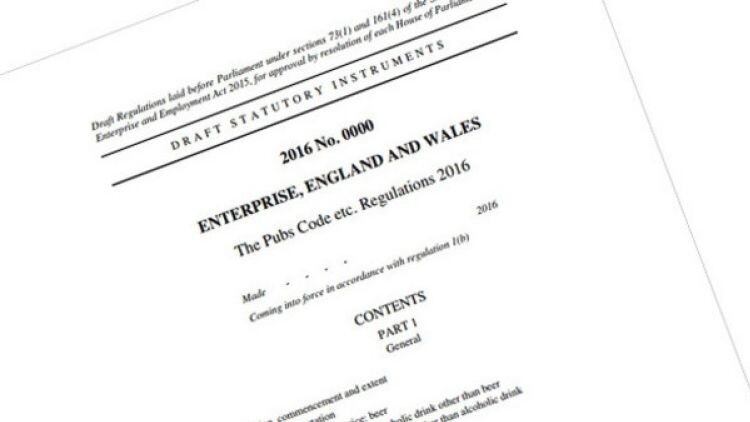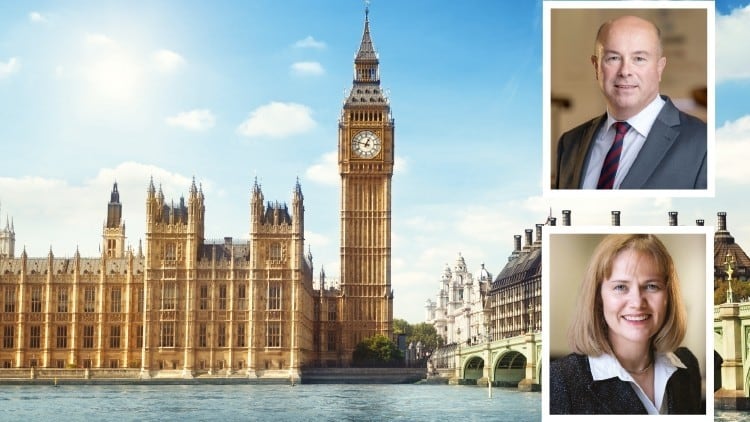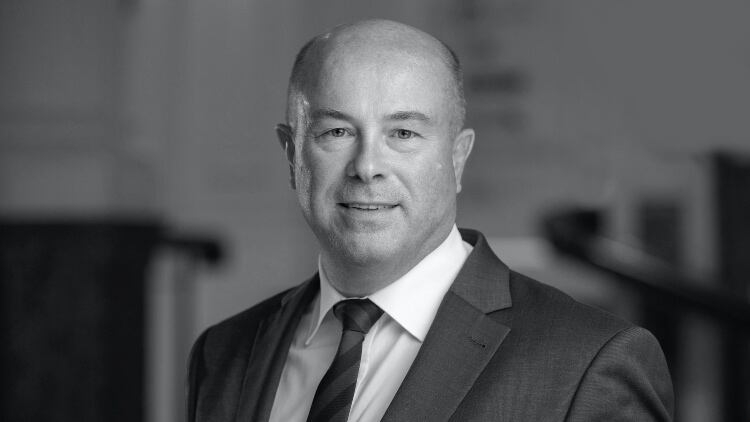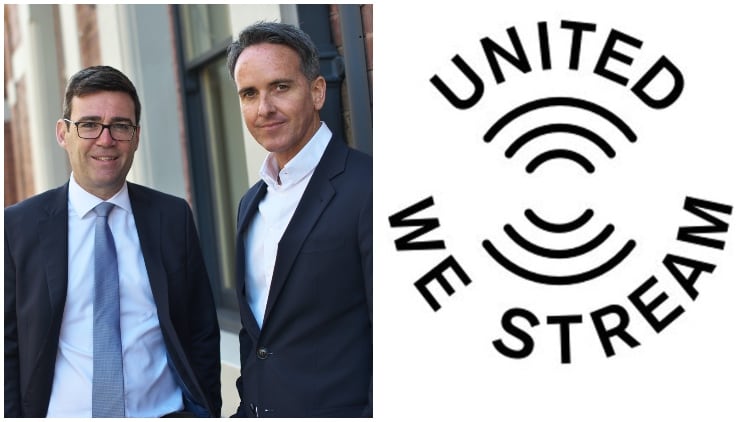Newby's successor
In February, the Government revealed that Fiona Dickie would succeed Newby when he steps down after a four-year stint as PCA.
Dickie, who was first appointed as deputy pubs code adjudicator in November 2017 and reappointed in October 2019, takes the role for a four-year term, as Newby did, starting 4 May 2020.
“I intend to be a strong champion for the rights and protections parliament has given to tied tenants through the pubs code,” Dickie said of her new position.
“The regulated pub companies know I will be clear and frank with them about my expectations when it comes to code compliance.
“As PCA, I intend to use my position to ensure that they deliver on their statutory obligations, and to make sure code rights are understood by tied tenants and that accessing them is straightforward.”
Newby commented that appointment would herald a seamless transition, which he believes will allow the office to continue its regulatory practices with minimal disruption.
“I’ve done a stint of four years, which was the term provided for by the legislation,” he told The Morning Advertiser. “It’s been quite challenging and hard work in lots of respects. It’s a seven-day-a-week job, working lots of Saturdays and Sundays – it was my choice to draw a line under that.
“I’d like to think the pub trade hasn’t seen the last of me,” he added. “This job hasn’t put me off a sector that I’ve spent the majority of my working life in.
“I haven’t yet decided what I’m going to do next, there are a number of possibilities, some of which are staying in the sector, some of which might not be. I want to carry on, if I can, trying to make a difference in the pub sector.”

Pubs code adjudicator (PCA) Paul Newby greets me with the point of his elbow.
He’s not responding to any adverse coverage in The Morning Advertiser (MA). On the pre-lockdown 4 March morning we meet in London’s Landmark Hotel, coronavirus guidance dictates that we’re to avoid shaking hands. Newby’s ‘corona elbow’ – also adopted by The Publican Awards host Rob Beckett at the 2020 gongs later than evening – is his state-sanctioned response.
In the time since, measures to combat the spread of Covid-19 rapidly escalated beyond social distancing into an unprecedented lockdown, including the blanket shutdown of Britain’s pubs.
“I can’t believe how much the world has changed in the past eight weeks,” Newby tells MA on 20 April. “This is something very few people saw coming and the enormity of it is evident.
“As the PCA, of course, we’ve redirected our priorities and resources to support the industry. It isn’t overstating at all; this is an existential threat for the trade. It’s an existential threat for tenants and pub companies.”
Since Prime Minister Boris Johnson called last orders on Friday 20 March, Newby says that his office has been in regular contact with each of the six companies under pubs code jurisdiction: Admiral Taverns, Ei Group, Greene King, Marston’s, Punch and Star Pubs & Bars.
While the ‘big six’ have gone as far as signing a declaration to “stop the clock” on rights after admitting they will be unable to uphold duties such as serving compliant rent and rent assessment proposals or full market-rent-only (MRO) option responses under lockdown, the issue of tenant rent looms.
“I have been working with the code compliance officers for each company to ensure tenants’ pub code rights are preserved during this period of the Covid-19 emergency,” Newby continues.
“In addition, I’ve had one-to-one conversations with the leadership of each of the regulated companies to find out what they’re doing individually, and what more they can do, to support tenants through the unprecedented times we’re facing.
“Support from the pub-owning businesses is about much more than just rent, although rent is clearly a very, very big issue.
“In general terms, we’ve asked them to take this opportunity to demonstrate leadership to the wider industry, to show they’ll go as far as they can to protect each and every tenant, and to demonstrate how they’ll do that.”
The declaration includes a pubco promise to act in “good faith” towards tenants during lockdown. Does Newby feel this has been comprehensively met from boardroom to business development manager thus far?
“That’s a very difficult question to answer categorically,” he says. “The commitment to act in good faith has been signed by directors from each of the pub-owning businesses. They’ve also committed to acting within the letter and spirit of the declaration in their dealings on pubs code matters.
“We feel that they’ve made strong and unequivocal commitments to us as a statutory regulator – I honestly don’t think they will have made them lightly or without the intention of meeting them.”
Speaking on the same day that the Coronavirus Job Retention Scheme launched, Newby adds that, in his opinion, there’s been a clear appreciation of the pandemic challenges facing the pub industry within Government.
“A total overnight loss of revenue and all of the risks and problems that brings, the need to safeguard the livelihoods of their staff, rent payments, and all the other costs and commitments that come with running a business – the Government has responded to that,
“The Government has, I think, done some good work to help but there’s more to be done to make sure the maximum amount of support is available and accessible. Pubs are cash-flow businesses, they don’t sit on big reserves of money to hibernate and live off over the winter – they need fast, urgent and accessible support.”
Working miracles
Career timeline
1969 – Solihull School
1977 – Sheffield Hallam – BSC (Hons) Urban Land Economics
1981 – Edwards Bigwood & Bewlay – trainee in commercial property
1983 – Associate, Royal Institution of Chartered Surveyors
1984 – Colliers Bigwood & Bewlay, associate partner – licensed and leisure property
1987 – Chesterton International, partner/director – licensed leisure and hotels and regional head of office agency
1991 – Fleurets, partner/director
1993 – Fellow, Royal Institution of Chartered Surveyors
2016 – Pubs Code Adjudicator
When Harold Macmillan became Britain’s Prime Minister, he was asked by a journalist what would determine his government’s course – famously responding “events, dear boy, events”. Despite Newby’s tenure being set against a politically turbulent four years, the same can’t be said for of the PCA.
“In the past four years, we’ve had the EU referendum and two general elections – I think that has been very distracting generally for parliament. Do I think that, ultimately, that’s made a lot of difference to the pubs code and what we’re doing? Not really.”
Looking back on Government support for his own office, he reflects: “It’s fair to say that you want to get on with the job without too much political interference and I think that’s been the case.”
Newby recalls that his first few weeks as PCA revolved around establishing a fully functioning office from near scratch, describing the completion of tasks such as acquiring premises and people on top of setting up a functioning website from nothing in 10 weeks as “pretty miraculous”.
“The first part of my time was very much about doing things that, with hindsight, perhaps something could have been done about beforehand.
“We were ready to go when the code came into force, but that doesn’t mean to say that all the resources we now have were in place at that point.”
Newby adds that, very quickly, his nascent office was engulfed in an unforeseen level of engagement. While the PCA model largely replicated the groceries code adjudicator (GCA) – the GCA has taken on fewer than 10 arbitrations since its inception in 2013, while the PCA accepted 394 between its creation in July 2016 and 31 March 2020 – an average of one every three days.
What also took Newby by surprise was the level of “hostility and animosity” faced.
In response to his appointment by then business minister Anna Soubry in March 2016, for example, MP Greg Mulholland – whose work Newby recognises “undoubtedly had a lot to do with the progress of tenants’ rights” – questioned Newby’s independence and argued that tenants had been “astonished” by the appointment that he claimed made a laughing stock of the role – suggestions Soubry denounced as a “disgraceful set of slurs”.
With critics asking why the Fleurets director had been appointed rather than someone from a legal background, what convinced Newby he was the man for the job?
“My thinking, at the time, was that my knowledge as a chartered surveyor – essentially the pubs code is about a property-based relationship with landlords and tenants – and understanding how the industry works from a property point of view was what was going to be needed to affect the changes the pubs code intends.
“I don’t think that anybody quite appreciated the extent to which the code would be challenged on a legal basis. There’s no doubt that a significant part of the reason for that was the way the legislation developed in parliament before it was finalised – the thing we spent most time talking about and certainly addressing in arbitration awards has been the MRO option, which was quite a late opposition amendment. The slotting of that into the legislation has caused a lot of debate and a lot of legal challenge.
“I was appointed to do a job and I’ve been trying to do it to the best of my ability with the resources I have available,” he continues.
“I think it is a shame that there was, and has been, a lot of criticism, and engagement with us has taken up time that I would have preferred to spend making a difference and bringing about change more quickly.
“I am in absolutely no doubt that some of the criticism of the PCA has been unfair. It takes time to make changes. I would appeal to the critics to please work with us because we’re all trying to pull in the same direction.”

Knowledge gap
Published on 19 December 2019, the PCA’s Tied Tenant Survey – which saw Ipsos MORI conduct 400 telephone calls before a series of 25 in-depth interviews – found that only a third of tenants (33%) claimed to be “very aware” of pubs code legislation, compared to 41% in the office’s 2017 survey, with less than half of those surveyed (47%) claiming to be “very” or “quite aware” of the PCA itself.
While appreciating that everyone needs to pull in the same direction, does Newby feel that the PCA faces a challenge to boost tenant awareness of the office and its legislation?
“There is undoubtedly a job to do to make sure the existence of the code is implanted in the tenant’s mind,” he says. “Although they may not need it today, they need to know it’s there when they do need it.
“We’re looking at how we can work with stakeholders to strengthen that tenant awareness factor and how we can, indeed, work with both the pub companies, groups that are supportive of tenants and advisers in the business to make sure that tenants are as aware as they can be so they have can have access to services they may need when they need them.”
The same survey found 56% of respondents claimed to feel “very” or “quite well informed” about the right to request MRO – down 7% from 2017 – though the majority (55%) of eligible tenants do not consider it a “genuine choice”.
“The first and fundamental port of call for that is the pub companies themselves,” Newby says. “We require the pub companies to make sure that tenants are aware as part of their own processes.
“There can be no excuse for a pub company not doing the things we have asked them to do in that area. At the end of the day though, it’s still up to the tenants to take those things in and to be aware themselves.
“Another point around the accessibility of MRO is about what happens once they think they would like to do it. There’s still work to be done by the pub companies to follow what the PCA is saying, and the very clear pathway we’ve established, to make sure that tenants do have, more quickly and accessibly, a genuine choice between tied and free of tie.
“We have done a lot to clear the pathway for that and I think the next period will be much about seeing that delivered. That may be stick, that may be carrot, it really depends upon pub companies themselves absolutely complying.”

‘No excuses’ for arbitration delays
Another complaint levelled at the PCA has been the time taken to come to arbitration decisions, with a number of cases spanning several months. What is it that’s caused publicans to be kept waiting?
“There were a lot of arbitration cases at the office’s formative stage,” Newby says. “There were delays in the process and I don’t shy away from the responsibility for that. It was a very challenging time.
“As we progressed, we were able to start getting through some of the cases but there was a backlog and a time delay. I’m not making any excuses, in a sense that was a performance issue because, however hard it was, people rightfully have an expectation that you get on with it.
“Fiona Dickie coming in as deputy was a move deliberately intended to address that issue at the time and we got through and dealt with that backlog. I can say that, today, there is no backlog within the PCA with arbitration cases.”
In addition to Dickie – who took Newby’s place on 4 May – exercising the PCA’s power to delegate to outside arbitrators has helped cut the considerable backlog down to size and increase the speed at which cases are responded to, according to Newby.
“The resolution of cases is now happening quite quickly, which has allowed the PCA to move out of the quite heavily arbitration side to being front footed and being a regulator.”
Stick and carrot approach
Favourite pub
“After 40 years that’s quite a difficult question to answer. The pub that I go to most regularly – so I suppose you could say it’s my favourite – is a pub called the Bull in a village called Barston, West Midlands.
“I go there primarily because it’s towards the end of my regular cycling route, it’s really nice traditional pub and the landlord keeps very good beer. In particular, my regular favourite Purity’s Mad Goose.
“Lastly, because until very recently, the landlord of the pub was someone I’d known for more than 40 years from when I started out working in a very busy Mitchells & Butlers (M&B) managed pub. The gentlemen concerned was a relief manager for M&B and ended up as the tenant of this pub. He’s just retired, and the pub has recently changed hands.”
Almost two months to the day after our first meeting, Newby leaves office with an ongoing statutory review in its final stage – not disrupted by Covid-19, he stresses, explaining that the PCA is “fully operational” during lockdown – and what he describes as the “significant possibility” that a seventh pub company, Hawthorn Leisure, will soon come under the code’s jurisdiction.
“This is an interesting role,” he reflects. “The PCA is first and foremost a regulator demands a stick and carrot approach. I think, also, it’s not unique but it a bit unusual in there being this dual function of arbitrator and regulator. The arbitration function and the regulatory function sometimes knock against each other. There’s a bit of a trick of having to be a regulator that, at times, bears its teeth and, at the same time, tries to encourage changes in behaviour that are better done by persuasion.”
What’s more, upon departure Newby hopes that his former office can continue to give tenants elbow room in their dealings with the big six.
“The major benefit of the pubs code is to rebalance the relationship between big company landlords and individual tenants. Parliament recognised there was an imbalance, so parliament legislated and has brought new rights to tenants.
“Let’s be clear, the legislation is absolutely about new rights and the change in the balance is not in the interest of pub companies. That balance has shifted and is continuing to shift, which is a good thing.
“These changes don’t come overnight, and the rebalancing does have a financial impact on the pub companies. They’re having to adjust to a new world and to accept they have to change where change is necessary.”




